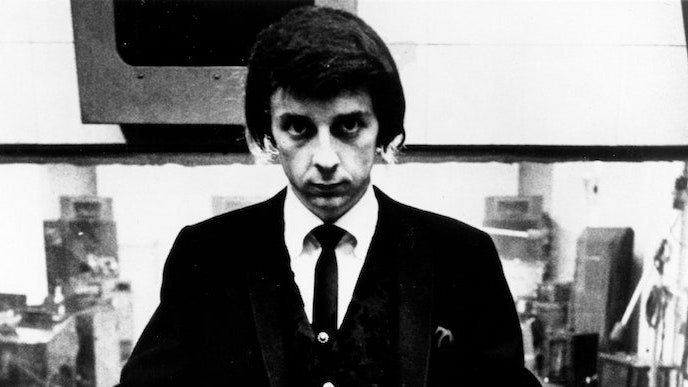Phil Spector Dead at 81

Phil Spector, the “wall of sound” producer famous for his work in 1960s pop and rock music, has died, the California Department of Corrections and Rehabilitation has confirmed. In a post on their website, the CDCR wrote that Spector “was pronounced deceased of natural causes” yesterday (January 16), at an outside hospital. It was later confirmed that Spector died of complications related to COVID-19, as his daughter Nicole Audrey Spector told The New York Times. Spector was taken to San Joaquin Hospital on December 31 for treatment and was intubated earlier this month. He was 81 years old.
Spector was behind several pop singles in the early 1960s, including the Ronettes’ “Be My Baby,” the Righteous Brothers’ “You’ve Lost That Lovin’ Feeling,” and the Crystals’ “Da Doo Ron Ron.” By the 1970s, he earned a reputation as an eccentric who frequently carried guns. In 2003, Spector was arrested after actress Lana Clarkson’s dead body was found in his mansion. In 2009, he was found guilty of second-degree murder. Spector was in prison serving his 19-year sentence. He has resided in the California Department of Corrections and Rehabilitation since June 5, 2009.
Spector was born on December 26, 1940 in New York City. His family moved to Los Angeles in 1953. For a few months in the late 1950s, Spector worked as a court reporter—the job didn’t last long before he decided to work in the music industry. He was a back-up singer, guitarist, and songwriter for the Teddy Bears. He slept on the floor of Jerry Leiber and Mike Stoller’s office and shadowed their recording sessions. The two songwriters and producers introduced their protégé to contacts in the Brill Building and the Atlantic Building.
Though he’d worked in the studio before, his first official production credit was for Ray Peterson’s 1960 single “Corinna, Corinna”—a top 10 hit as his first official outing. After working with vocalists like Curtis Lee, Bobby Darin, and Gene Pitney, he assumed that he could find success with an all-female vocal group, which were scarce at the time. In 1961, he co-founded Philles Records and began working with the Crystals who, a year later, scored a number one hit with “He’s a Rebel.”
Soon, he began working with writers Ellie Greenwich and Jeff Barry—they co-wrote hits like “Da Doo Ron Ron” and “Be My Baby.” In 1963, he delivered the Christmas album A Christmas Gift to You from Philles Records, which featured the Crystals, the Ronettes, Darlene Love, and others. His wall of sound production also backed the Righteous Brothers’ biggest hits (“You’ve Lost That Lovin’ Feeling” and “Unchained Melody.”)
He produced Ike & Tina Turner’s “River Deep, Mountain High,” and when it didn’t become a major hit in the U.S., he became disillusioned and took a hiatus from music. “I think when it came out, it was just like my farewell,” he told Rolling Stone in 1969. “I’m still involved with why ‘River Deep’ wasn’t a hit, and what the fuck was… am I that hated? Am I too paranoid?”
By 1966, he was reclusive and paranoid. He married the Ronettes’ Ronnie Spector and reportedly kept her imprisoned in his mansion; she said he threatened to kill her if she left. In 1972, she escaped, running away from the house without shoes on. “My feet were all cut up, but I didn’t care,” she said. “I knew I would’ve died there.”
Some of his most famous production came in 1970 when he produced John Lennon’s Plastic Ono Band, George Harrison’s All Things Must Pass, and the Beatles’ Let It Be. In Harrison’s liner notes for the 2001 reissue of All Things Must Pass, he writes, “[Spector] helped me so much to get this record made. In his company I came to realize the true value of the Hare Krishna mantra. God bless you Phil.”
